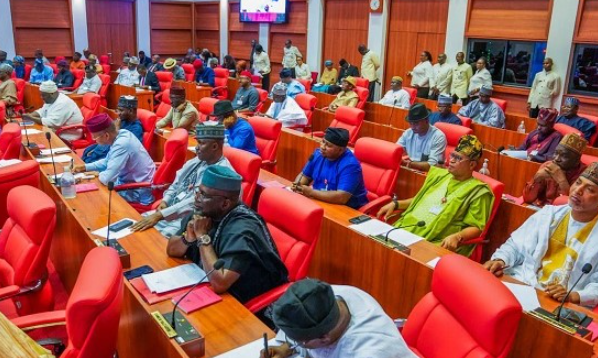
The Nigerian Senate has taken a major step toward outlawing the recruitment of anyone under 18 into the military, as lawmakers passed the Armed Forces (Repeal and Re-enactment) Bill, 2025 for its second reading.
The new provision, which forbids the enlistment of minors, brings Nigeria’s military laws in line with the Child Rights Act (2003), the UN Convention on the Rights of the Child, and the African Charter on the Rights and Welfare of the Child.
Sponsored by Senator Abdulaziz Yar’Adua (Katsina Central), the bill proposes a complete overhaul of the Armed Forces Act, 2004, replacing it with a constitutionally aligned and operationally modern framework.
Leading debate on the Senate floor, Yar’Adua said the reform was overdue, noting that the existing law, rooted in an old military decree, no longer reflects democratic standards or the nation’s current security landscape.
“Our Armed Forces remain a symbol of unity and national pride, but the laws governing them have not progressed with our democracy,” he said. “This bill reconstructs the military’s legal framework to uphold justice, professionalism, and respect for human rights.”
The proposed legislation introduces wide-ranging updates, including an expanded list of military offences, proportionate sentencing, and stronger protections for courts-martial through the criminalisation of undue influence by superior officers.
For the first time, the bill will also allow legally trained military officers to represent the Armed Forces in civil courts. It further establishes a dedicated litigation fund to ensure prompt and effective management of military legal cases.
Outdated fines, some still set at N200 or N500, will be replaced with penalties calculated as a percentage of an offender’s salary, making sanctions more realistic and deterrent in today’s economic environment.
The bill also streamlines the military chain of command and reinforces civilian oversight. It clearly assigns day-to-day operational leadership to the Chief of Defence Staff, acting under presidential authority, in accordance with Section 218 of the Constitution.
This clarification removes ambiguities in command structure and strengthens the principle of civilian supremacy, an essential hallmark of democratic governance.
The Senate has referred the bill to the Joint Committee on Army, Navy, and Air Force, with a directive to report back within four weeks.